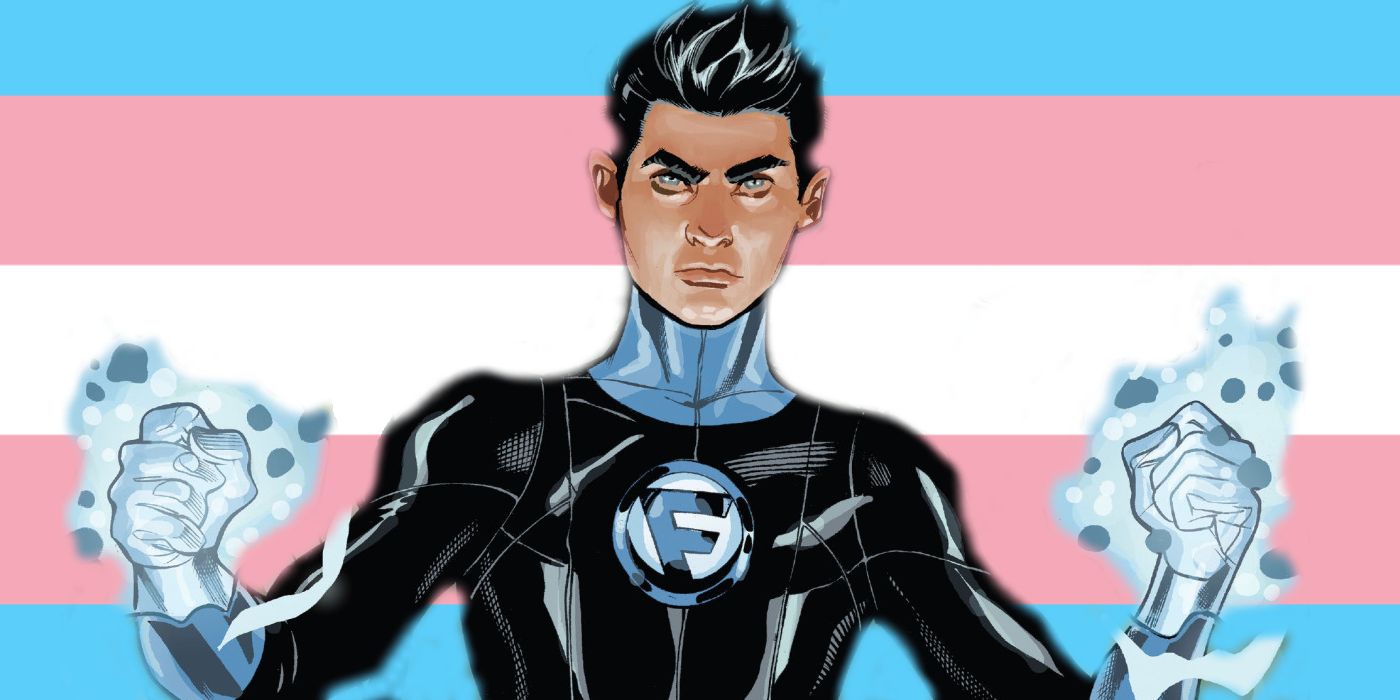Warning: spoilers for Fantastic Four #45 ahead!
Marvel's treatment of Franklin Richards (of the Fantastic Four) is an excellent showcase of how the publisher struggles with trans representation. Although recent entries in the MCU such as Ms. Marvel speak to a growing understanding of how to handle diversity, for every step forward the comics seem to take a half-step back. This has been particularly prevalent in the Fantastic Four, and how an offhand joke comes across as incredibly damaging for the interpretation of a character.
The son of Sue Storm and Reed Richards, Franklin is one of the most powerful members of the Marvel Universe, shown to be capable of manipulating reality and even creating universes from a very young age. In X-Men/Fantastic Four by Chip Zdarsky and Terry Dodson, it’s revealed that Reed Richards' son’s powers evolved from an X-gene, making him a mutant. Many fans interpreted Franklin's struggle as an allegory for being trans, based on the numerous parallels seen throughout the series. However, Franklin's mutant status was retconned in Fantastic Four #26 by Dan Slott, R.B. Silva, and Jesus Aburtov, when it was revealed that Franklin had subconsciously used his powers to make himself seem to be a mutant instead.
Now, in Fantastic Four #45 by Dan Slott, Farid Karami, and Jesus Aburtov, the issue of Franklin's mutant status and trans allegory appears to be touched upon again. Having sheltered from Ruin of the Reckoning inside Thought-Space, Valeria cannot convince Franklin to leave with her as doing so would require him to abandon the godlike powers (that make him the most powerful member of the Fantastic Four) conferred upon him in that dimension. As Reed and Sue beg him to return, Franklin asks them "If I use this power on myself, if I make it so I'm the way I feel inside, tell me you're okay with that." Sue and Richard agree, promising to love him unconditionally, and Franklin emerges...and reveals that he has permanently given himself black hair.
Franklin's language here explicitly mirrors the language of coming out and the struggles of LGBTQA+ people to claim autonomy over their bodies, and hits especially close with the character having been held as a trans allegory in the past. Turning this new "coming out" moment (with him literally stepping out of a closet dimension) into an offhand comment about Franklin's hair color comes across as a punchline more than a revelation and does a tremendous disservice to Marvel's other new trans characters. While there is nothing wrong with claiming an identity as cisgender or heterosexual, couching a quip about hair color in the language of coming out is insensitive at best, and insulting at worst.
Comic books are infamously mercurial, and there is no reason that the current status quo has to remain as such. It is quite possible that a future issue could have Franklin revealing that he gave himself an X-gene and simply did not tell his parents upon emerging from the gate. However, that does not change that Marvel chose to handle this moment in this issue in an incredibly cavalier and damaging way. This is a major problem, especially with Marvel struggling to commit to its diversity push. Marvel must take its trans representation far more seriously and joking about hair color with the Fantastic Four is not the way to do it.
Fantastic Four #45 is now available from Marvel Comics.


